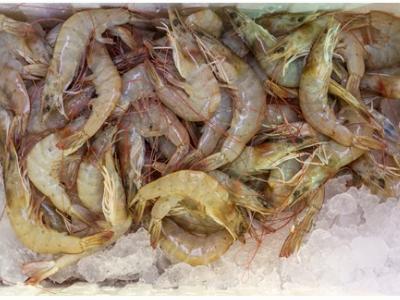XTRACT® Shrimp improves performance and resistance to disease in Pacific white shrimps

The major challenges in shrimp farming include optimizing parameters of productive performance such as the growth rate, final weight, and feed efficiency, while at the same time limiting mortality resulting from external stresses and challenges. Among these factors, infection with the Vibrio strain of bacteria has been shown to be a major threat to a large number of farms, and is known to cause one of the major diseases affecting aquaculture. In a trial led by a research team at the Chulalongkorn University in Thailand, the effects of XTRACT®Shrimp on overall performance and resistance to Vibrio cholerae in Pacific white shrimps (Penaeus vannamei) were studied. The results support the role of XTRACT®Shrimp in enhancing immune function and strengthening host resistance in response to pathogen challenge.
Trial protocol
Pacific white shrimps (post larvae 15 days), each weighing 1 g, were transferred to tanks, with each tank containing 20 shrimps in total. The shrimps were treated with either the negative control or with feed supplemented by XTRACT®Shrimp, and each treatment was replicated five times. The negative control consisted of a basal diet composed of fishmeal, squid powder, squid liver powder, shell meal, wheat flour, soybean meal, vitamins, and minerals. The supplemented feed comprised the basal diet in addition to 200 g/t XTRACT® Shrimp, mixed with fish oil and top coated at 1.5% onto the pellets. The trial was divided into two parts; during part one of the trials, the shrimps were evaluated for a period of four months under optimal conditions, and in part two, the shrimps were studied following exposure to the pathogenic Vibrio cholarae.
Optimal conditions
During optimal conditions, exposure to XTRACT®Shrimp resulted in a significantly improved growth rate, which resulted in a higher final body weight (P < 0.05). In addition, the feed efficiency of shrimps fed with XTRACT® improved compared to shrimps receiving the basal diet only (P < 0.05). In addition, XTRACT® exerted immune-modulating properties as demonstrated by the greater phagocytic activity, resulting in a reduced mortality rate during this period (P < 0.05, see figure below).

During part two of the study, the shrimps were closely observed for a period of 10 days following the intra-muscular injection of Vibrio cholerae at the LD50 dose. Subsequent to pathogen challenge, the shrimps supplemented with XTRACT® showed a reduced mortality rate that was 2 fold lower compared to the challenged negative control (mortality rates of 23.3% and 56.7% respectively; see figure). These studies support the role of XTRACT® in enhancing the resistance of the shrimps to pathogen infection.


Sampling of hemolymph from ventral sinus to measure phagocytic activity. Trial led at the Chulalongkorn University in Thailand

Challenge with Vibrio cholerae
During part two of the study, the shrimps were closely observed for a period of 10 days following the intra-muscular injection of Vibrio cholerae at the LD50 dose. Subsequent to pathogen challenge, the shrimps supplemented with XTRACT® showed a reduced mortality rate that was 2 fold lower compared to the challenged negative control (mortality rates of 23.3% and 56.7% respectively; see figure). These studies support the role of XTRACT® in enhancing the resistance of the shrimps to pathogen infection.

Có thể bạn quan tâm
Feed additives may help to reduce the impact of early mortality syndrome on shrimp stocks, according to a report from Minh Phu AquaMekong Shrimp Vet Laboratory
 Can Natural Strategies Effectively Combat EMS?
Can Natural Strategies Effectively Combat EMS? Each year the shrimp industry suffers losses of more than US$1 billion due to early mortality syndrome or acute hepatopancreatic necrosis (EMS/AHPND)
 Water Quality Parameter Analysis for the Feasibility of Shrimp Culture
Water Quality Parameter Analysis for the Feasibility of Shrimp Culture Shrimp culture in ponds has been expanded to be a bio-food industry proved to yield foreign exchange and provide job opportunities besides animal protein source